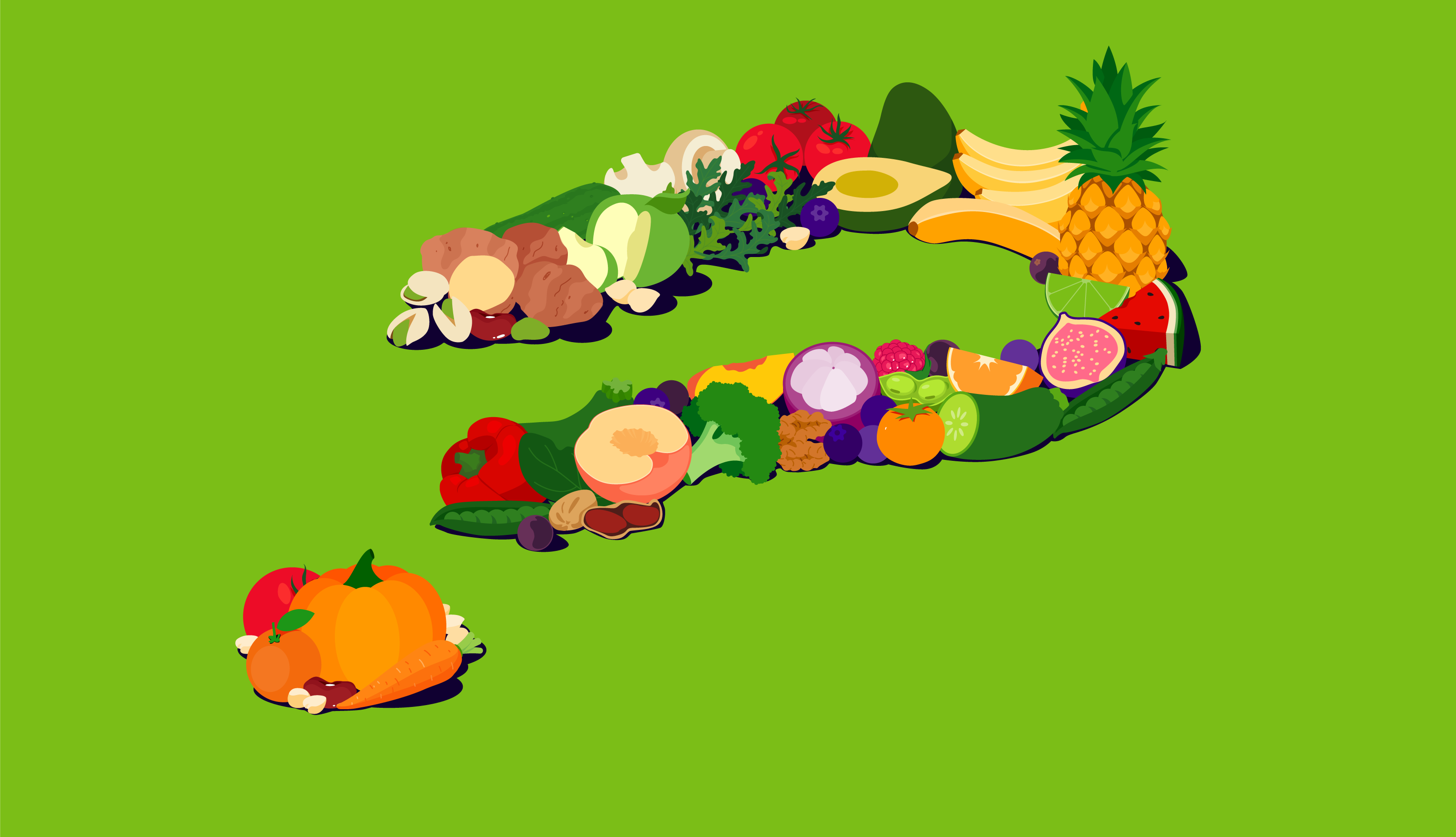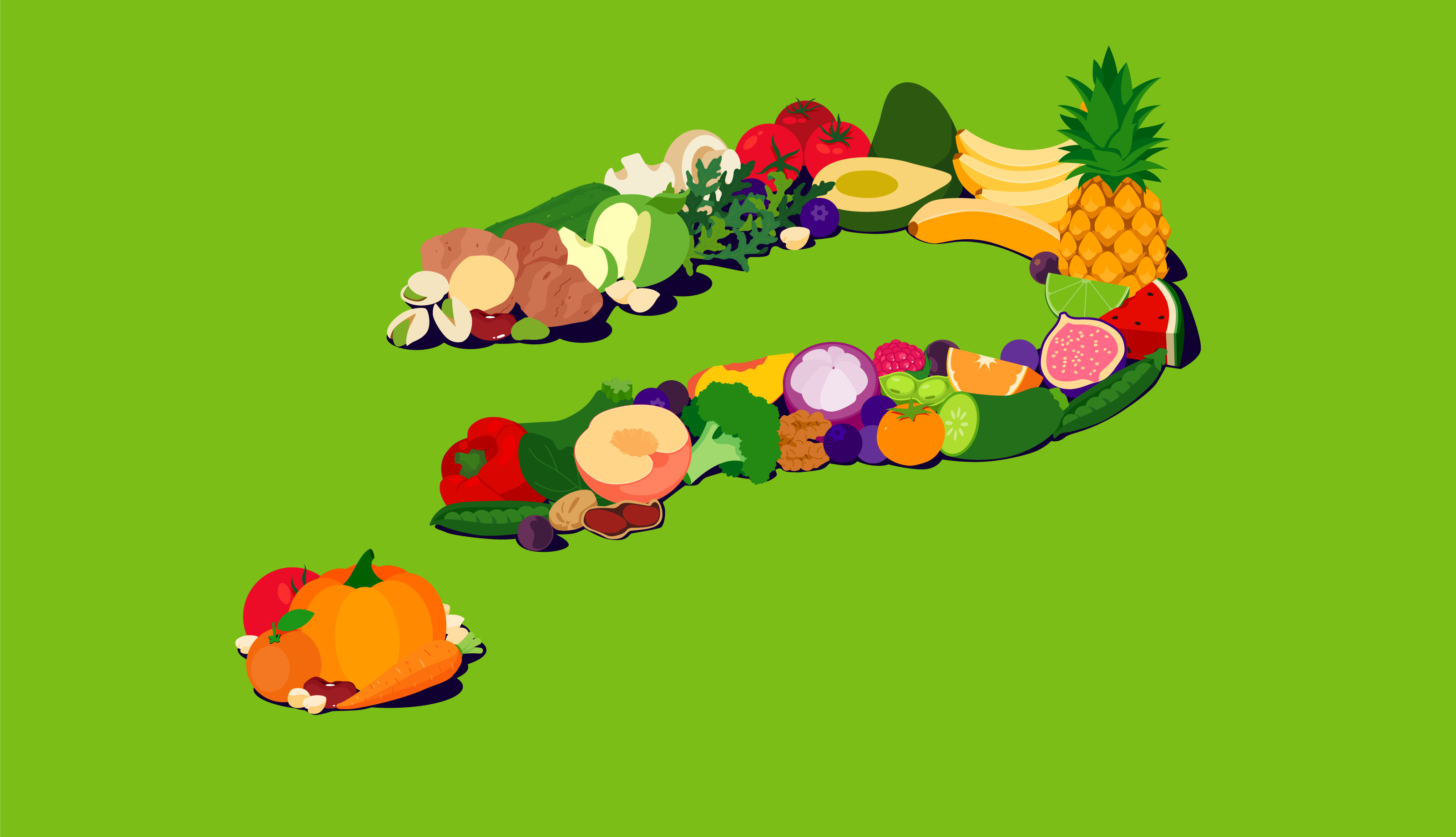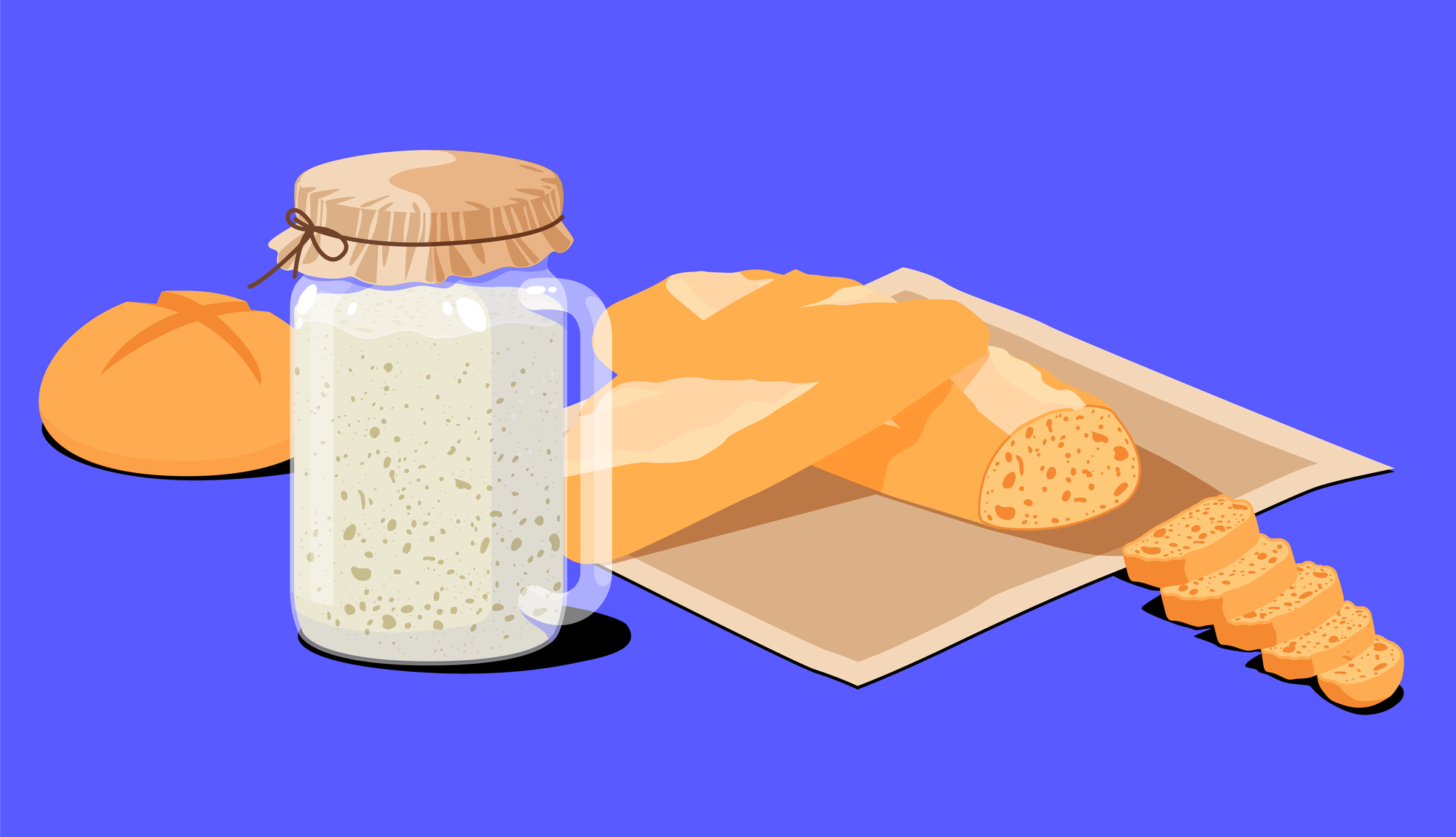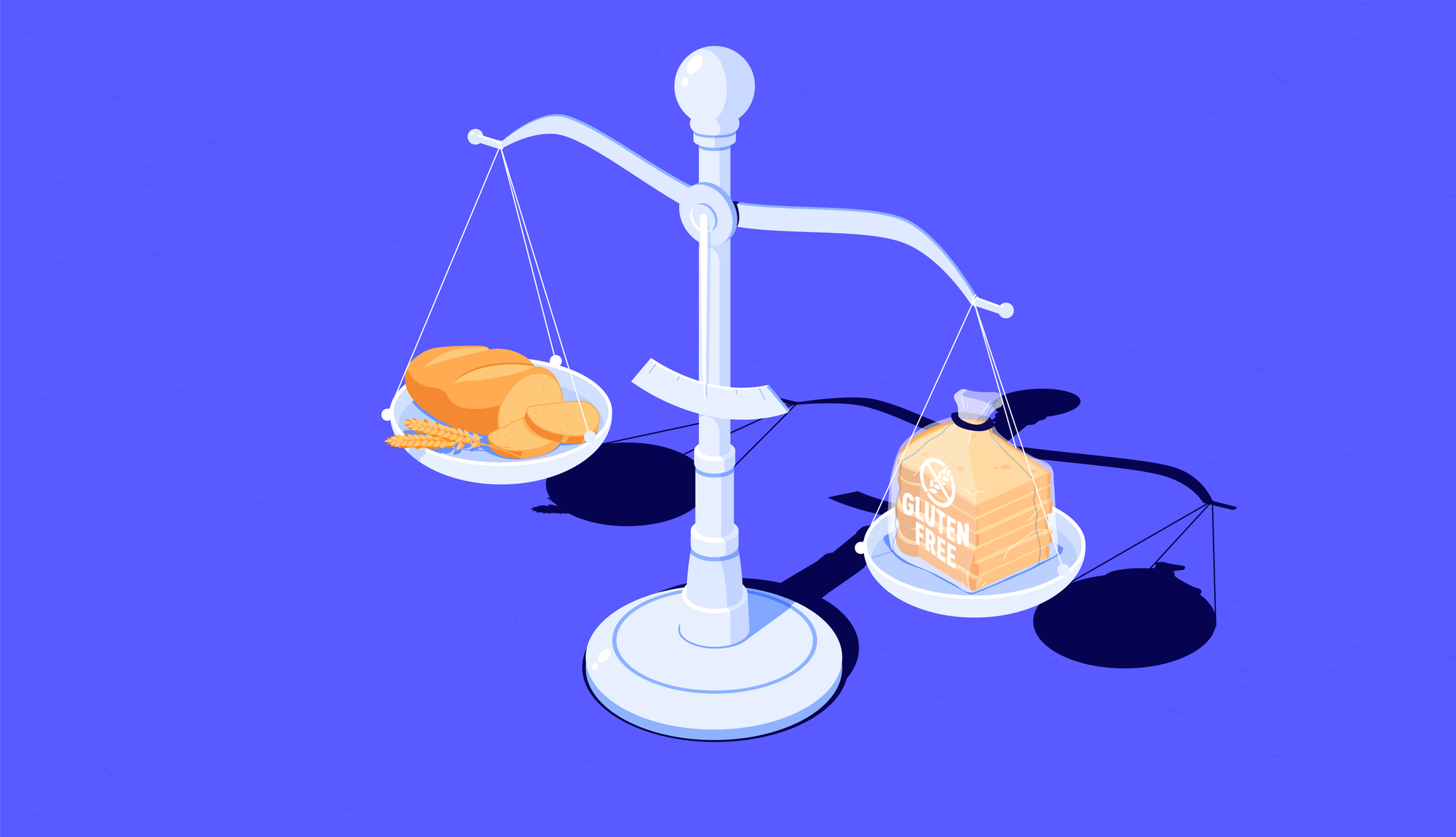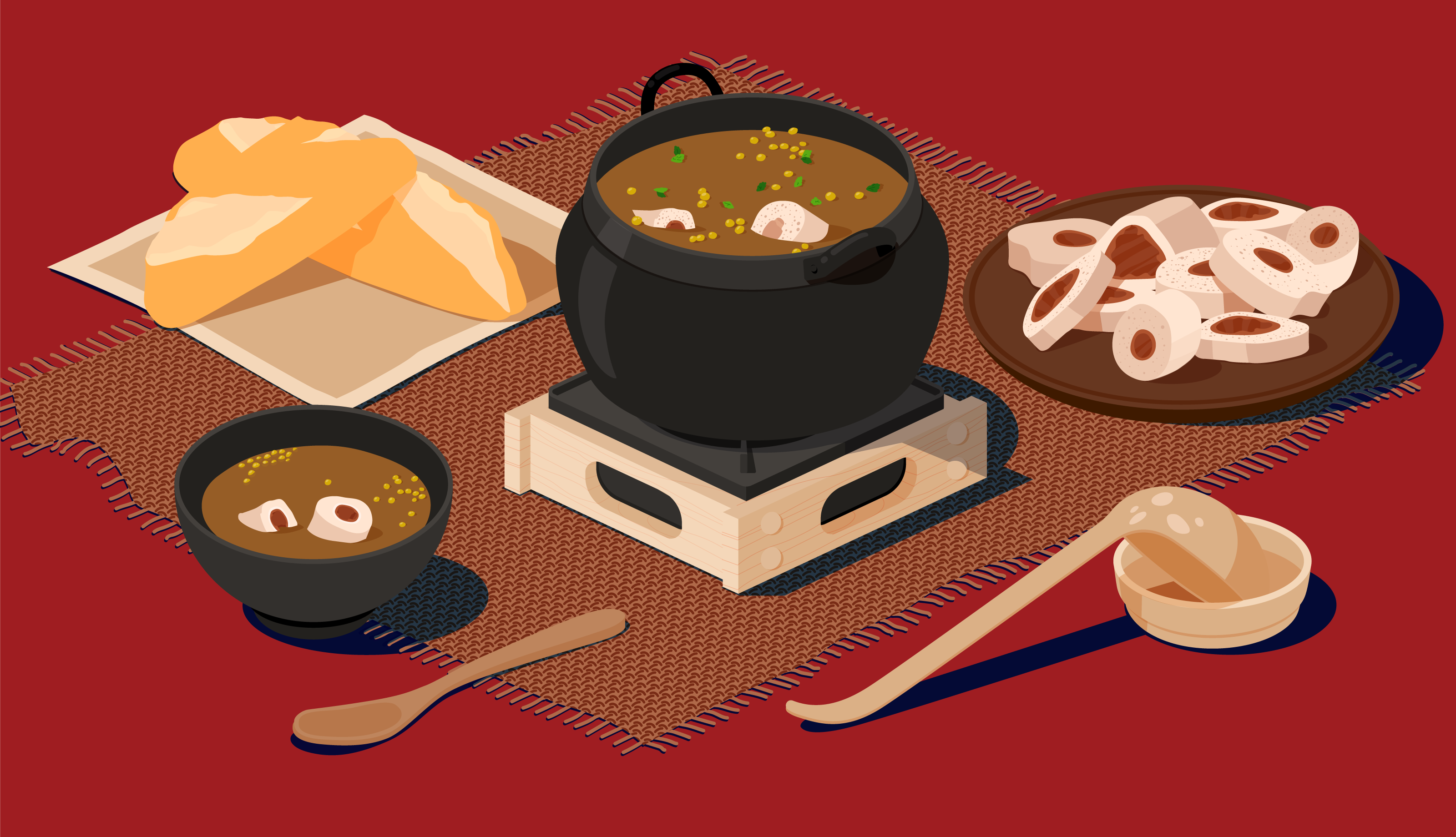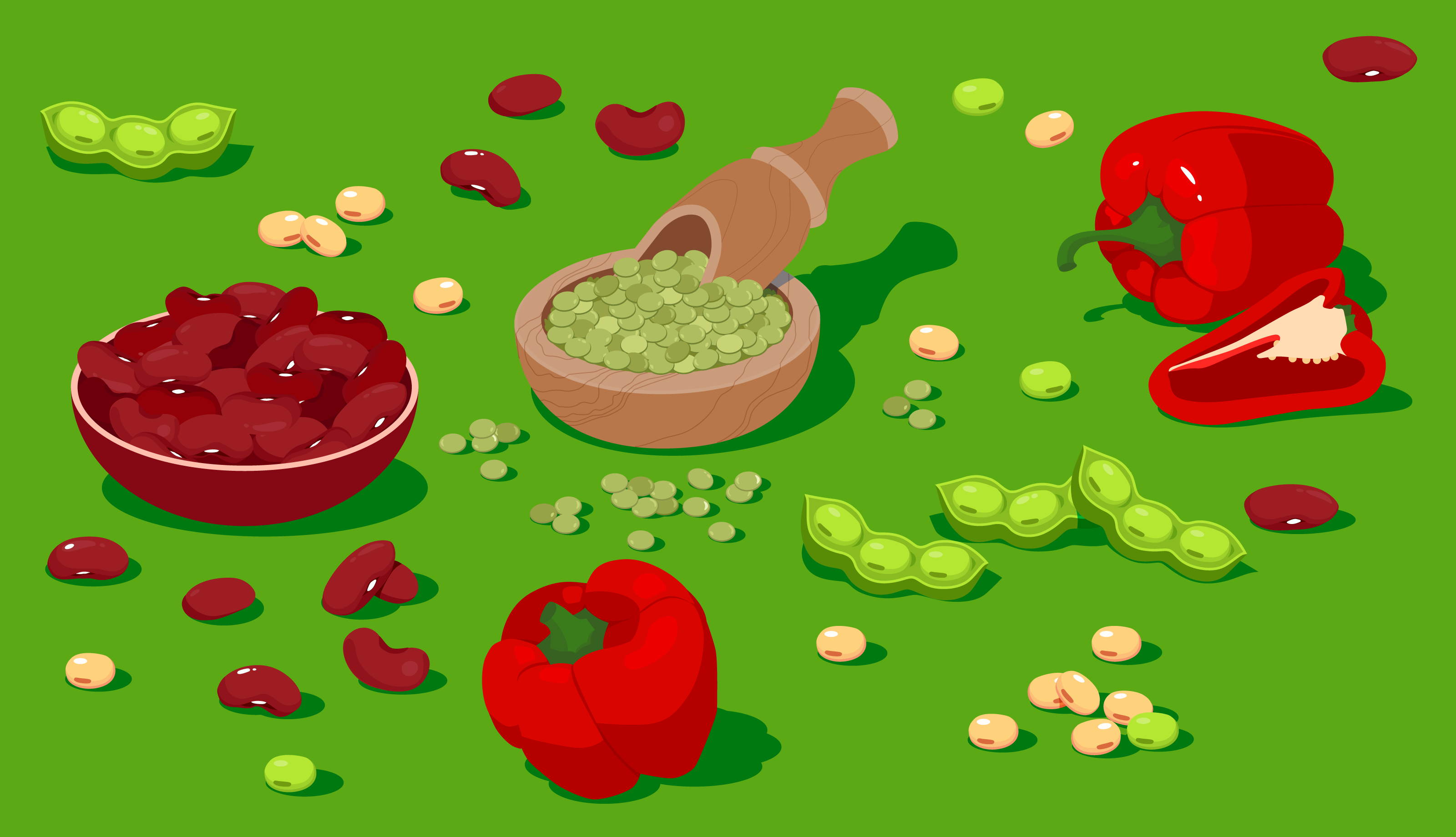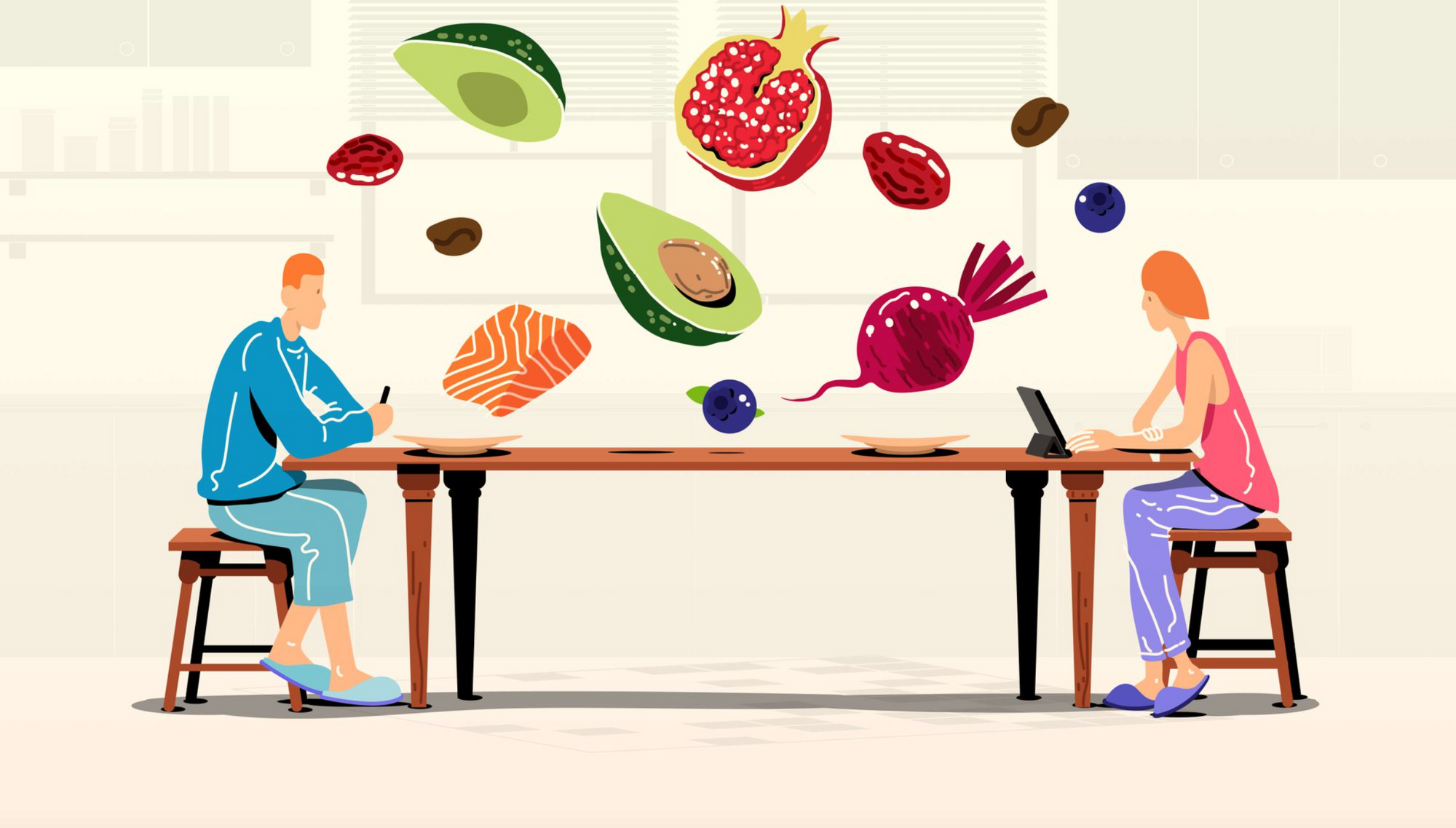When it comes to nutritional advice online and in print, myths and misinformation are rife; from tabloid headlines warning that soy causes cancer to influencers selling juice cleanses as a panacea, it can be hard to know what to believe amidst the noise.
As a result, many go about modifying their diet and losing weight the wrong way, using methods that are ineffective at best and harmful at worst. Today’s article tackles the most common food myths with a dose of science and a dash of common sense. Without further ado, let’s dive in.
Table of contents
- MYTH 1: All calories are equal
- MYTH 2: You should avoid carbs when losing weight
- MYTH 3: Bread is bad for you
- MYTH 4: Gluten-free is healthier
- MYTH 5: All fat is bad
- MYTH 6: Fresh produce is more nutritious than frozen
- MYTH 7: Certain foods can burn fat
- MYTH 8: Legumes are toxic and cause inflammation
- MYTH 9: Superfoods can make up for a poor diet
- MYTH 10: Soy can cause breast cancer
MYTH 1: All calories are equal
When losing weight, it is important that you achieve a calorie deficit. In simple terms, this means you are burning more calories than you consume.
Whilst a “calorie deficit” is essential for weight loss, calorie counting doesn’t reflect the quality of your diet, namely because not all calories are made equal.
For example, 100 calories of salmon cannot be compared with 100 calories of fizzy drinks; one offers beneficial nutrients like omega 3 and 6, whilst the other is high in sugar and preservatives.
Additionally, different foods impact satiety (fullness) in unique ways; foods with a low Glycemic Index (GI) lead to a gradual rise in blood sugar levels, making you feel fuller for longer.
On the contrary, high GI and GL foods can trigger cravings and mood swings. These factors are not reflected in calories, despite their association with weight gain and disease risk.
MYTH 2: You should avoid carbs when losing weight
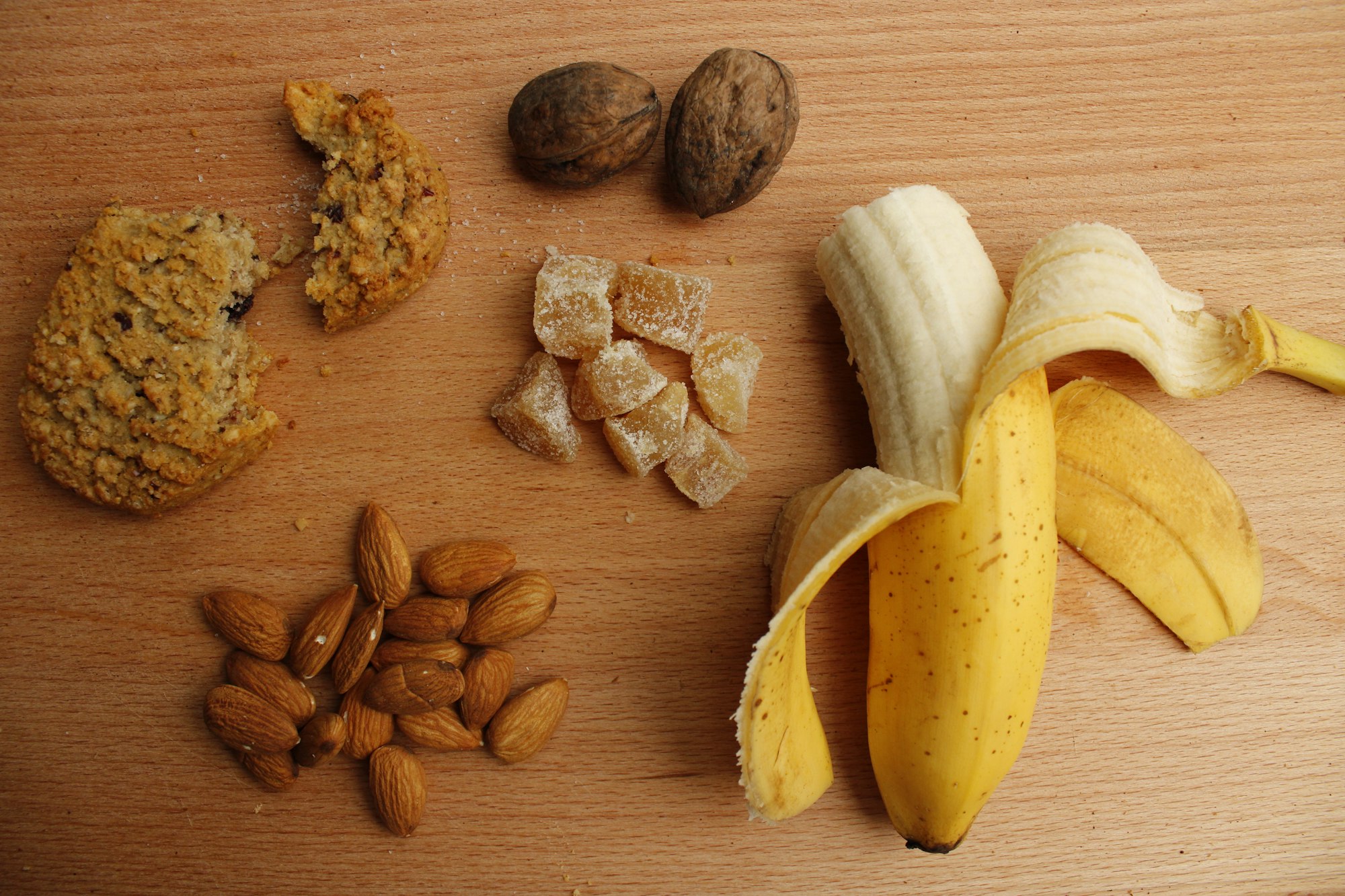
Carbohydrates are one of the three macronutrients, alongside proteins and fats. While cutting out some carbohydrates may aid with weight loss, namely refined carbs and sugary snacks, labelling all carbs “fattening” is a harmful myth.
There are three types of carbohydrates, namely starch, sugar and fibre, all of which have vastly different properties. For example, refined pasta tossed in a cheese sauce is high in carbs, but then again, so are sweet potatoes, beetroot or corn.
Rather than cutting carbohydrates from your diet entirely, focus on the quality and quantity of the carbohydrates you consume instead.
It is recommended that adults get around 30g of fibre daily, though many fail to meet this requirement. Fibre is essential to our health as it can nourish beneficial gut bacteria and aid digestive health.
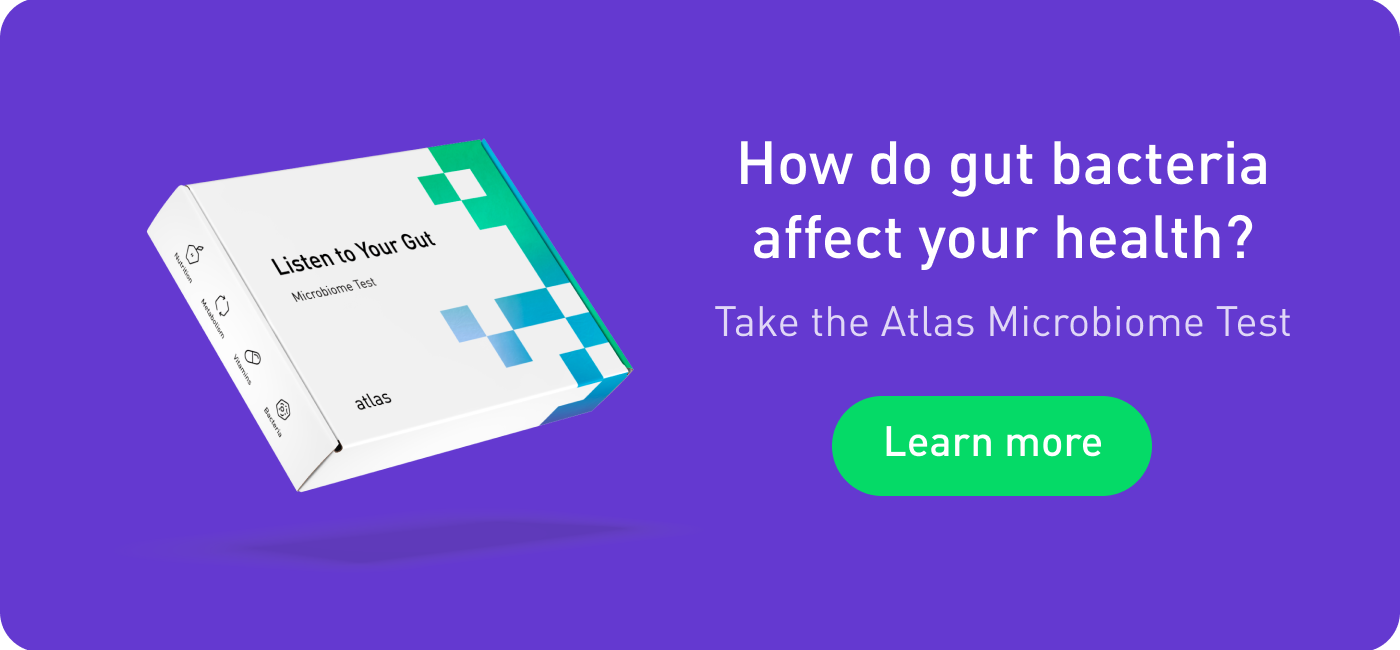
MYTH 3: Bread is bad for you
On the topic of carbs, few foods are more maligned than bread. Sadly, many treat all bread products as if they are nutritionally equal, entirely ignoring the hierarchy of different grains and preparation methods.
Numerous studies have linked increased whole-grain consumption with a reduced risk for coronary heart disease, obesity and all-cause mortality. This is likely since whole grains contain as much as 75% of the nutrients found in refined alternatives.
Likewise, sourdough whole-grain bread often has a lower glycemic index than bread made with baker’s yeast, preventing blood sugar spikes and keeping you fuller for longer. By doing so, low GI bread may prevent overeating and aid with weight management.
In short, it is a gross oversimplification to say that "bread" is bad for you. Instead of cutting out bread entirely, aim to substitute refined, industrially made bread for whole-grain or sourdough alternatives, as these are generally higher in minerals, fibre and nutrients. With that said, always check the labels to be sure.
MYTH 4: Gluten-free is healthier
Unless you have gluten sensitivity, coeliac disease or a wheat allergy, there is no convincing evidence that a gluten-free diet can benefit your health.
Moreover, some studies suggest that a gluten-free diet may increase the risk of nutrient deficiencies, including fibre, selenium and folic acid. Worse still, research suggests that gluten-free options can be 240% more expensive than their glutinous counterparts!
MYTH 5: All fat is bad for you

Fats are one of three macronutrients, meaning nutrients we need in larger amounts to obtain energy. Restricting fats entirely is dangerously reductive and overlooks the different kinds of fat that exist.
Instead of cutting out all fats, focus on eating the right kind instead. More specifically, it is advised that you cut down on saturated fats, and substitute these with healthier, unsaturated fats found in avocados, nuts, seeds and oily fish.
There are two subcategories within unsaturated fats, namely monounsaturated and polyunsaturated. Both monounsaturated and polyunsaturated fats are associated with a reduced risk for conditions such as heart disease and diabetes.
Lastly, don’t simply assume that “low-fat” products are always healthier. In some cases, they can be high in sugar and calories, so check the label.
MYTH 6: Fresh produce is healthier than frozen
Frozen produce is almost like-for-like with fresh produce in terms of nutritional value. To demonstrate, let’s play a quick game of Top Trumps with frozen and fresh peas.
With that said, frozen peas contain 36g of calcium per 100g, while fresh peas contain around 19mg in the same serving! A confident win for frozen!
Whilst the exact measurements differ across different types of fruit and veg, freezing does not significantly alter the nutritional value of food items.
In fact, frozen produce is packaged shortly after picking, potentially preserving healthful phytonutrients!
MYTH 7: Certain foods can burn fat
You may have heard that a shot of apple cider vinegar can burn stubborn fat, but there’s no evidence to support these claims.
Regardless of what influencers or the diet industry may tell you, the key to weight loss is monitoring the quality and quantity of the calories you are consuming and making lifestyle changes.
MYTH 8: Legumes are toxic and cause inflammation

Lectins are a plant protein found at particularly high levels in beans and legumes. Most notably, raw kidney beans contain a high level of lectins called phytohaemagglutinin that can induce food poisoning.
But here’s the catch- lectins are heat-sensitive, meaning cooking them destroys most, if not all, of the protein.
Continuing, there are no human studies to show that long-term consumption of lectin-rich foods has any adverse health effects, assuming they are sufficiently cooked.
What’s more, many foods high in lectin are prebiotics also, meaning they feed the beneficial bacteria in our gut.
The Food and Drug Administration (FDA) warns that cooking red kidney beans for less than 10 minutes below boiling temperature can increase the toxicity five-fold.
Last but not least, never cook raw beans in a slow-cooker as the heat is insufficient to remove lectins. If you are concerned about cooking beans, purchase them canned and cooked instead.
MYTH 9: Superfoods can make up for a poor diet
No single food item can protect you against disease or compensate for wider poor dietary habits. In truth, “superfood” is more of a marketing term than a nutritional fact, catering to an understandable desire for a nutritional golden bullet.
While some foods certainly pack a nutritional punch, so-called “superfoods” should be part of a balanced, diverse diet, never seen as quick fixes or “health hacks”. A far healthier approach to nutrition is to build a “super plate” that is nutritionally balanced and full of variety.
MYTH 10: Soy can cause breast cancer
Soya is rich in compounds called isoflavones which can bind to oestrogen receptors. In some animal studies, mice exposed to high levels of isoflavones show increased breast cancer rates, prompting fears it could increase cancer risk in humans.
Further research has shown that rodents process isoflavones very differently from humans. What's more, the levels used in animal studies are significantly higher than those likely present in an average person’s diet.
Interestingly, there is growing evidence that soy consumption may offer protective effects against breast cancer among Asian women who consume soy from a young age. Soy foods have also been associated with reduced rates of heart disease, though this may be due to other factors such as reduced meat intake.
According to the American Cancer Association, “So far, the evidence does not point to any dangers from eating soy in people, and the health benefits appear to outweigh any potential risk.”
Likewise, the BBC conclude that the studies conducted to date strongly suggest health benefits from eating soya, even if this is simply because it replaces unhealthier options such as red or processed meat.
==☝️DISCLAIMER☝This article is for informational purposes only. It is not intended to constitute or be a substitute for professional medical advice, diagnosis, or treatment.

